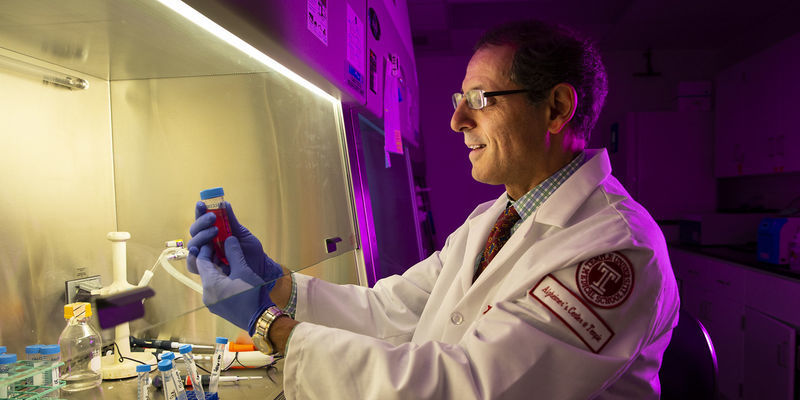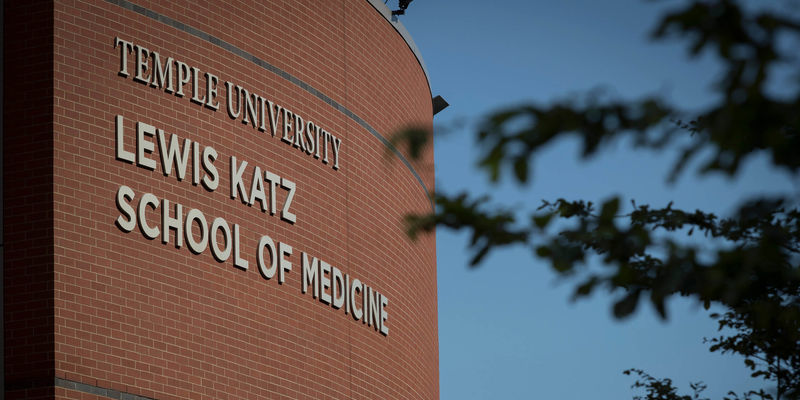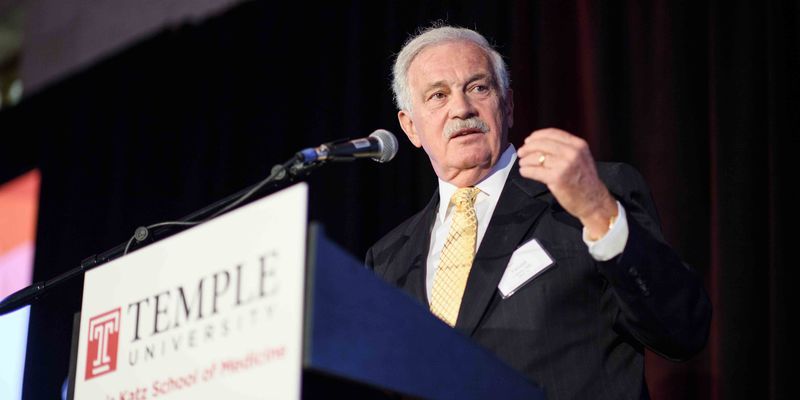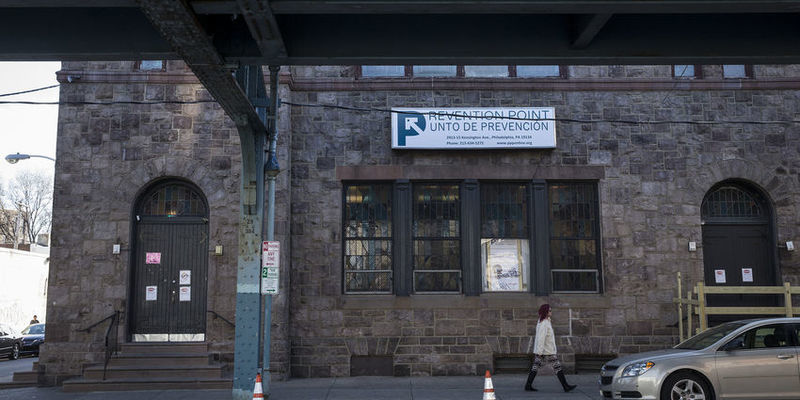Temple’s Amy Goldberg receives prestigious Philadelphia Award
The award recognizes extraordinary service to underserved communities in our city.
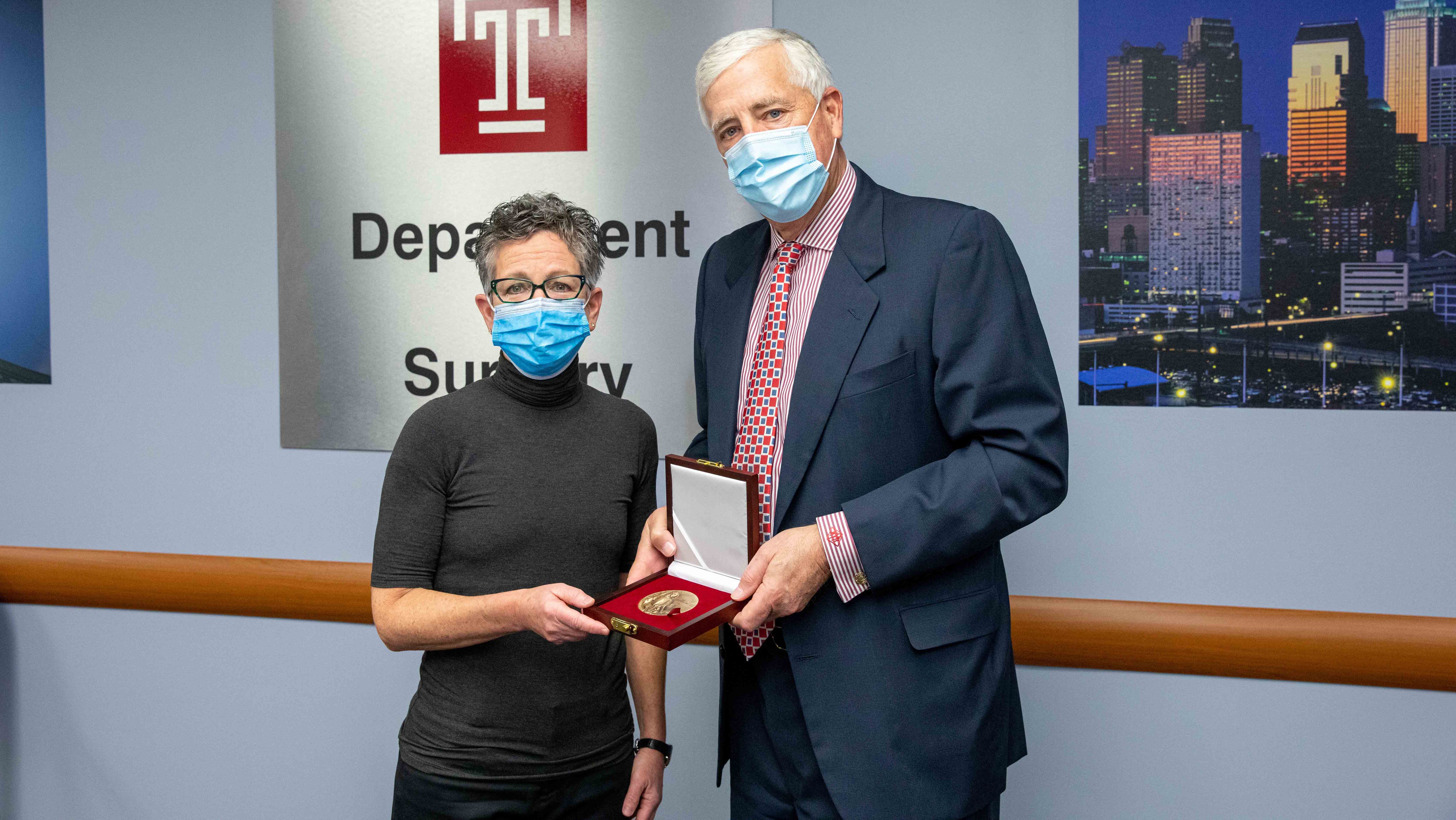
In a virtual ceremony held on Nov. 4, renowned Temple trauma surgeon and advocate for gun violence prevention Amy Goldberg received the coveted Philadelphia Award for 2019, the 99th year of the annual award.
“This award represents the advocacy that is done in the city for people who can’t necessarily speak for themselves," said Goldberg, the George S. Peters, MD and Louise C. Peters Chair and Professor of Surgery at the Lewis Katz School of Medicine and surgeon-in-chief of Temple University Health System. “It’s such an honor to be recognized for the decades of work that we’ve done at Temple University Hospital, and most importantly, an opportunity to acknowledge those who need a voice.”
Also receiving the award were Luis Cortés Jr., founder, president and CEO of Esperanza, and Nicole Kligerman, founder and director of the Pennsylvania Domestic Workers Alliance.
“This year’s honorees have dedicated their careers and lives to help Philadelphians who dwell in the shadows of our society,” said David L. Cohen, chair of the board of trustees of the Philadelphia Award and senior executive vice president of Comcast Corporation. “Recognizing the work of Luis, Amy, and Nicole shines a light on three important and neglected communities experiencing the despair of poverty, ravages of gun violence, and the unfairness of low-wage employment. The extraordinary work of our honorees illuminates a path forward to serve our forgotten and overlooked neighbors and neighborhoods most in need.”
A Temple University Hospital (TUH) trauma surgeon for 30 years, Goldberg knows the catastrophic damage a single bullet can inflict not just on the physical body, but in the minds of victims, families, bystanders and an entire community. A Level-1 trauma center that treats more gunshot and penetrating wound victims than any other in Pennsylvania, TUH is one of the only hospitals in the country with a hospital-based gun violence prevention program and one of only 25 hospitals nationally to have established intervention programs
The innovative programs at TUH were born from Goldberg’s experience during a trauma fellowship in 1992 when she performed life-saving surgery on a 16-year-old gunshot wound victim who died, was revived, and survived. When she saw her former patient months later, he wasn’t attending school, and she was stunned.
“It occurred to me that even though we saved his life, we didn’t improve his life expectancy if we didn’t have the tools and systems in place to assist him when he was discharged,” Goldberg said.
The case stuck with her and became a slow-growing seed of change. In 2005, Goldberg advocated for hiring psychologist Scott Charles as Temple’s first full-time trauma outreach coordinator. Together, they developed four initiatives aimed at gun-violence prevention, action and intervention.
The groundbreaking Cradle to Grave prevention program utilizes the hospital’s trauma bay as a live classroom to educate youth and adults about how bullets destroy organs, muscle, and bone and show the tools and instruments used by trauma surgeons to repair the damage.
Fighting Chance sends doctors out of the hospital and into the streets to provide a series of first aid training sessions that teach community members what to do in the critical minutes after a gunshot wound and before EMTs arrive, empowering neighbors to save neighbors.
With Safe Bet, free gun locks are passed out—no questions asked—to help prevent unintentional firearm injuries and death.
Turning Point works to use gunshot trauma as a life changing opportunity for affected patients, beginning at the hospital bedside. Additional counseling, speaking with a trauma survivor, and the choice to watch the video observation of doctors working to save their lives are offered and become part of the healing and recovery process. A recent study of 80 gunshot patients in Turning Point found reductions in proclivities to violence and aggressive responses, suggesting that a bullet intended to end life could create a path to a new beginning.
After earning her undergraduate degree in psychology from the University of Pennsylvania, Goldberg earned her medical degree from the Mount Sinai School of Medicine. She completed her general surgery residency at Temple University Hospital in 1987 and in 1993 joined the surgical faculty of Temple. She is a nationally celebrated clinician scholar with a robust portfolio of highly regarded publications and presentations, and is the winner of multiple awards for her contributions to academic medicine and education.
Goldberg is also regularly called on by the national and local press for her expertise, including being featured extensively in the Huffington Post Highline article “What Bullets Do to Bodies,” which details the long-term physical and emotional damage suffered by victims of gun violence.
—Jeremy Walter
